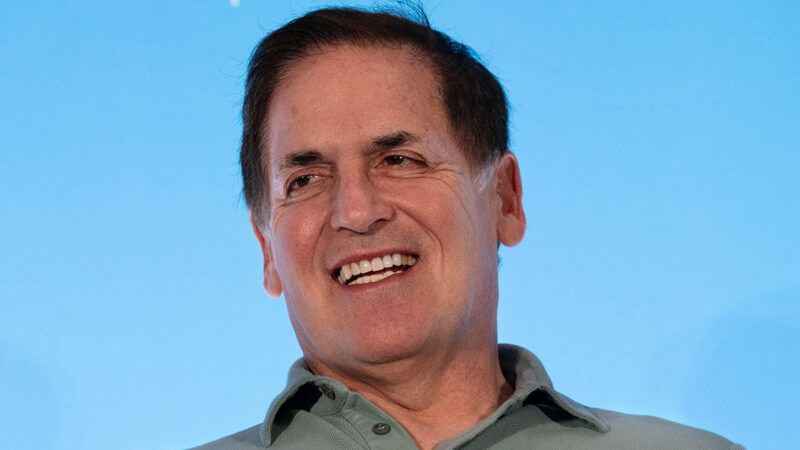Mark Cuban on Pharmacy Prices, Health Care, and 'Good' Billionaires
"If you were an asshole when you were poor, you're going to be a bigger asshole when you're wealthy," the Shark Tank personality tells Reason.

Billionaire entrepreneur, co-host of ABC's Shark Tank, and Dallas Mavericks co-owner Mark Cuban's latest venture is the Mark Cuban Cost Plus Drug Company. It aims to tackle the high cost and lack of transparency in the pharmaceutical industry by offering cheap generic drugs. When Cuban spoke with Eric Boehm for the second season of Reason's limited series podcast Why We Can't Have Nice Things, he shared the origins of Cost Plus Drugs, the challenges of disruption in the health care sector, and what it means to be a "good" billionaire.
Q: If you were a contestant on Shark Tank, how would you explain the idea of Cost Plus Drugs? What's the elevator pitch?
A: Who do you trust within the medical supply chain? Your doctor. Do you think the health care system is run properly? Do you trust it at all? If I could show you a business where you could trust it because everything was transparent, would you be more likely to use it? Yes. And if I can show you this business, then show that I saved you money on your medications, would you be willing to tell others? Yes.
Q: There is such a lack of transparency in drug pricing, the idea to just put that information out there seems like it should change the way other people behave. Have you seen that yet?
A: The smartest thing we did was publish our price list, because the people who typically set the pricing—the pharmacy benefit managers—do everything possible to eliminate transparency with their contracts. Well, when we published the price list of what started as 100-plus drugs and now is 2,500 medications, all of a sudden there was a benchmark that everybody could compare. Not only their own pricing, if they're a self-insured employer, but also for Medicare or Medicaid, to compare what the government is paying.
The impact has been immediate, and led to companies starting to look at what they paid and realizing they were getting ripped off.
Q: Given the way the health care industry works right now, could you have started Cost Plus Drugs if you weren't already a billionaire?
A: No chance. It's expensive. And let me just tell you this: if there was a wealth tax where I had to withhold a lot of cash just in case the stock market went up and I had to pay my 2 percent, I couldn't do this. It's a good problem to have. I'm not complaining. All I'm saying is, in terms of fungible cash to invest in things that matter, I couldn't have done it if there was a tax on unrealized capital gains or net worth.
Q: Some people say that the very existence of billionaires is a policy failure. What do you say to that?
A: I'm not going to argue with that. Look, I'm lucky. I'm the luckiest guy in the world. The fact this happened to me, I try to never take it for granted and try to give something back. I recognize not everybody does that. So is it a policy failure that billionaires exist? You can make that argument. But you can also argue that not all super wealthy people are good people, but maybe there is a net benefit to society in the end. Because then it comes down to where that money [would] be otherwise. Who spends it better and who's more efficient: government or us? I can make you an argument from both sides. It comes down to leadership.
Q: What makes a good billionaire or a bad billionaire?
A: If you were a good person when you were poor, you'll be a good person when you're wealthy. If you were an asshole when you were poor, you're going to be a bigger asshole when you're wealthy. Regardless of how much money you have, if it's in your nature to help people, you will.
This interview has been condensed and edited for style and clarity.


Show Comments (15)